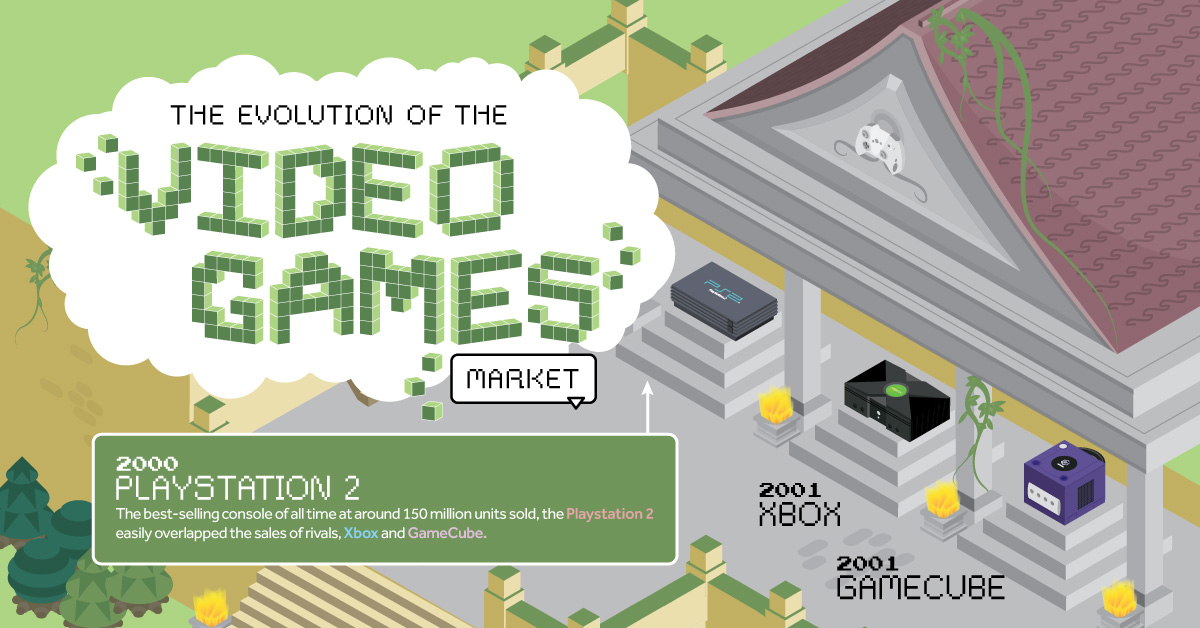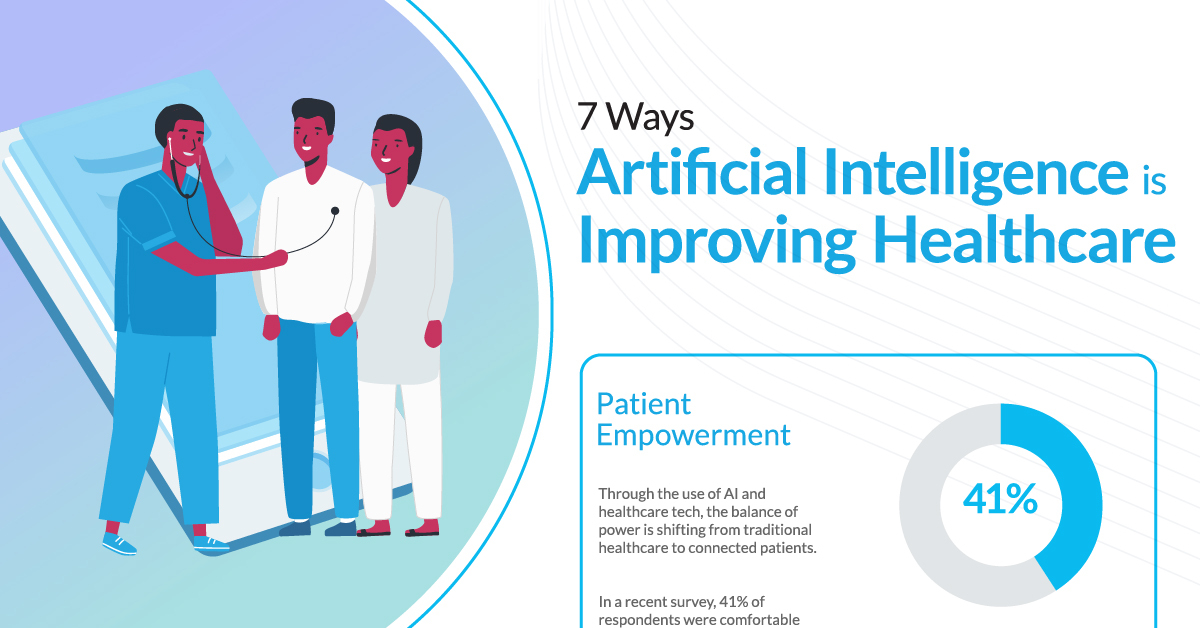7 Ways Artificial Intelligence is Improving Healthcare

7 Ways Artificial Intelligence is Improving Healthcare
Emerging technologies have the potential to completely reshape the healthcare industry and the way people manage their health. In fact, tech innovation in healthcare and the use of artificial intelligence (AI) could provide more convenient, personalized care for patients.
It could also create substantially more value for the industry as a whole—up to $410 billion per year by 2025.
This graphic by RYAH MedTech explores the ways that technology, and more specifically AI, is transforming healthcare.
How is Technology Disrupting the Patient Experience?
Tech innovation is emerging across a wide range of medical applications.
Because of this, AI has the potential to impact every step of a patient’s journey—from early detection, to rehabilitation, and even follow-up appointments.
Here’s a look at each step in the patient journey, and how AI is expected to transform it:
1. Prevention
Wearables and apps track vast amounts of personal data, so in the future, AI could use that information to make health recommendations for patients. For example, AI could track the glucose levels of patients with diabetes to provide personalized, real-time health advice.
2. Early Detection
Devices like smartwatches, biosensors, and fitness trackers can monitor things like heart rate and respiratory patterns. Because of this, health apps could notify users of any abnormalities before conditions become critical.
Wearables could also have a huge impact on fall prevention among seniors. AI-enabled accelerometer bracelets and smart belts could detect early warning signs, such as low grip strength, hydration levels, and muscle mass.
3. Doctors Visits
A variety of smart devices have the potential to provide support for healthcare workers. For instance, voice technology could help transcribe clinical data, which would mean less administrative work for healthcare workers, giving them more time to focus on patient care.
Virtual assistants are expected to take off in the next decade. In fact, the healthcare virtual assistant market is projected to reach USD $2.8 billion by 2027, at a CAGR of 27%.
4. Test Results
Traditionally, test results are analyzed manually, but AI has the potential to automate this process through pattern recognition. This would have a significant impact on infection testing.
5. Surgery / Hospital Visits
Research indicates that the use of robotics in surgery can save lives. In fact, one study found that robot assisted kidney surgeries saw a 52% increase in success rate.
Robotics can also support healthcare workers with repetitive tasks, such as restocking supplies, disinfecting patient rooms, and transporting medical equipment, which gives healthcare workers more time with their patients.
6. Rehabilitation
Personalized apps have significant care management potential. On the patient level, AI-enabled apps could be specifically tailored to individuals to track progress or adjust treatment plans based on real-time patient feedback.
On an industry level, data generated from users may have the potential to reduce costs on research and development, and improve the accuracy of clinical trials.
7. Follow-ups and Remote Monitoring
Virtual nurse apps can help patients stay accountable by consistently monitoring their own progress. This empowers patients by putting the control in their own hands.
This shift in power is already happening—for instance, a recent survey by Deloitte found that more than a third of respondents are willing to use at-home diagnostics, and more than half are comfortable telling their doctor when they disagree with them.
It’s All About the Experience
Through the use of wearables, smart devices, and personalized apps, patients are becoming increasingly more connected, and therefore less dependent on traditional healthcare.
However, as virtual care becomes more common, healthcare workers need to maintain a high quality of care. To do this, virtual training for physicians is critical, along with user-friendly platforms and intentionally designed apps to provide a seamless user experience.
-

 Sponsored3 years ago
Sponsored3 years agoMore Than Precious: Silver’s Role in the New Energy Era (Part 3 of 3)
Long known as a precious metal, silver in solar and EV technologies will redefine its role and importance to a greener economy.
-

 Sponsored7 years ago
Sponsored7 years agoThe History and Evolution of the Video Games Market
Everything from Pong to the rise of mobile gaming and AR/VR. Learn about the $100 billion video games market in this giant infographic.
-

 Sponsored8 years ago
Sponsored8 years agoThe Extraordinary Raw Materials in an iPhone 6s
Over 700 million iPhones have now been sold, but the iPhone would not exist if it were not for the raw materials that make the technology...
-

 Sponsored8 years ago
Sponsored8 years agoThe Industrial Internet, and How It’s Revolutionizing Mining
The convergence of the global industrial sector with big data and the internet of things, or the Industrial Internet, will revolutionize how mining works.


